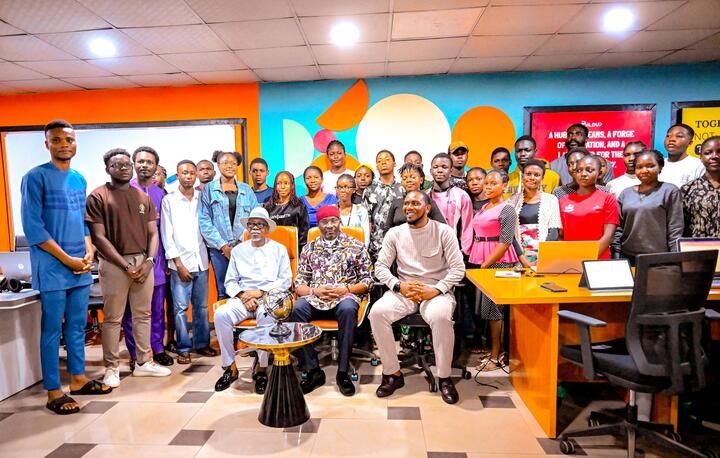The House of Representatives is considering the inclusion of Artificial Intelligence (AI) learning as part of lawmakers’ constituency projects, according to the Deputy Speaker, Rt. Hon. Benjamin Okezie Kalu.
Kalu made this known on Saturday during a visit to the Bildup AI Learning Hub in Enugu, where several young Nigerians are currently undergoing AI-based training. He was accompanied by the House Majority Leader, Prof. Julius Ihonvbere, and other members of the House on the sidelines of the Constitution Review Committee retreat.
The Deputy Speaker said integrating AI learning into constituency projects would accelerate human capital development and strengthen Nigeria’s digital economy.
“We need to expand what you are doing, and that is where government partnership comes in,” Kalu said. “We will make a case for you in the Ministries of Education and Science and Technology. My office will partner with you to showcase your work because our human capital development is key. It’s not about politics; it’s about development.”
He emphasized that Nigeria’s youthful population could leverage AI education to provide digital services to global technology companies while earning foreign exchange.
“This will help us produce more service providers who can sit in Nigeria and deliver services to companies like Oracle, Facebook, and Instagram while earning in foreign currency,” he added. “Keep innovating and dreaming—the future is bright.”
Kalu also encouraged his colleagues to establish AI learning hubs in their constituencies.
“Bildup has simplified learning—making it accessible and affordable,” he said. “It’s time we make it part of our constituency projects so that students can learn and build. Human capacity development is key.”
He praised the ingenuity of Nigerian youth and reaffirmed his commitment to supporting Bildup AI Learning to ensure its sustainability and expansion.
Earlier, the Chief Executive Officer of Bildup AI, Chibuike Aguene, described the platform as Africa’s first indigenous AI-powered learning system capable of teaching and interacting with students like a human tutor.
He said the platform addresses the long-standing teacher-student ratio challenge by offering personalized, one-on-one learning experiences through artificial intelligence.
“Imagine every student having access to the world’s best teacher on a one-to-one basis,” Aguene said. “This technology bridges the gap and ensures that even those in remote areas have equal access to quality education.”
Aguene also revealed that Bildup AI includes a career mentorship feature that guides students toward their interests and future professions while connecting graduates to global job opportunities through an integrated marketplace.
He noted that the initiative aligns with the Federal Government’s recent policy, which mandates technology skills as part of the national school curriculum, expressing pride that such innovation originated from the South East.
“It’s a moment of pride for the entire region and a win for every innovator in Nigeria,” Aguene said. “We’re not replacing teachers—we’re enhancing what they do.”

